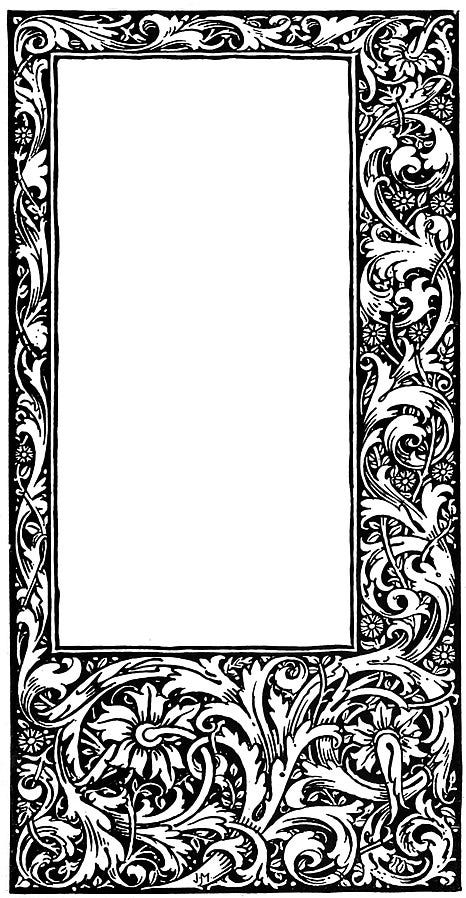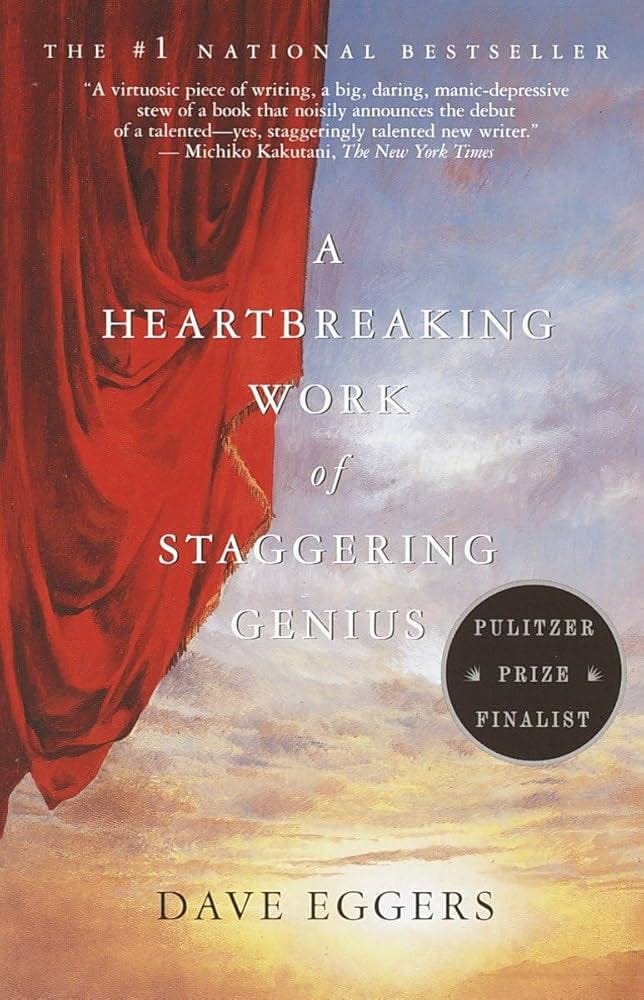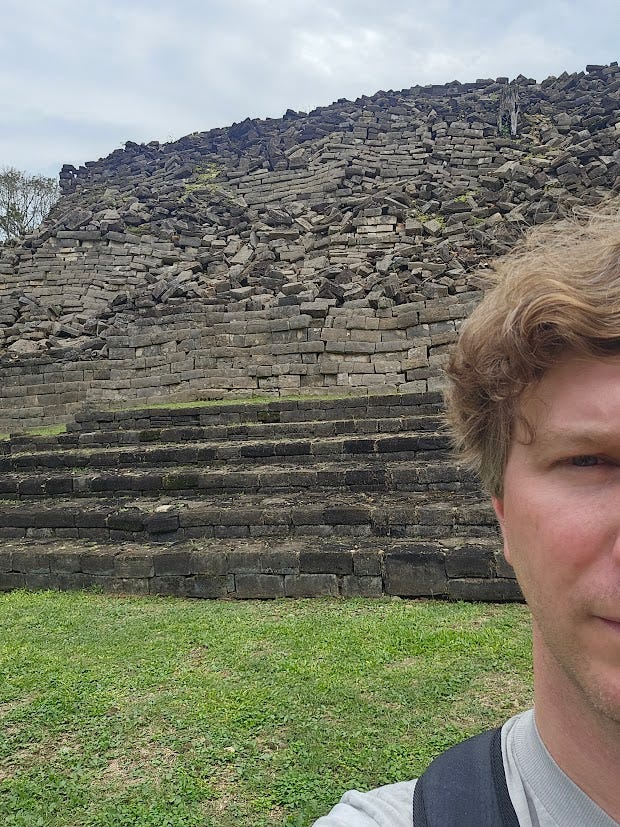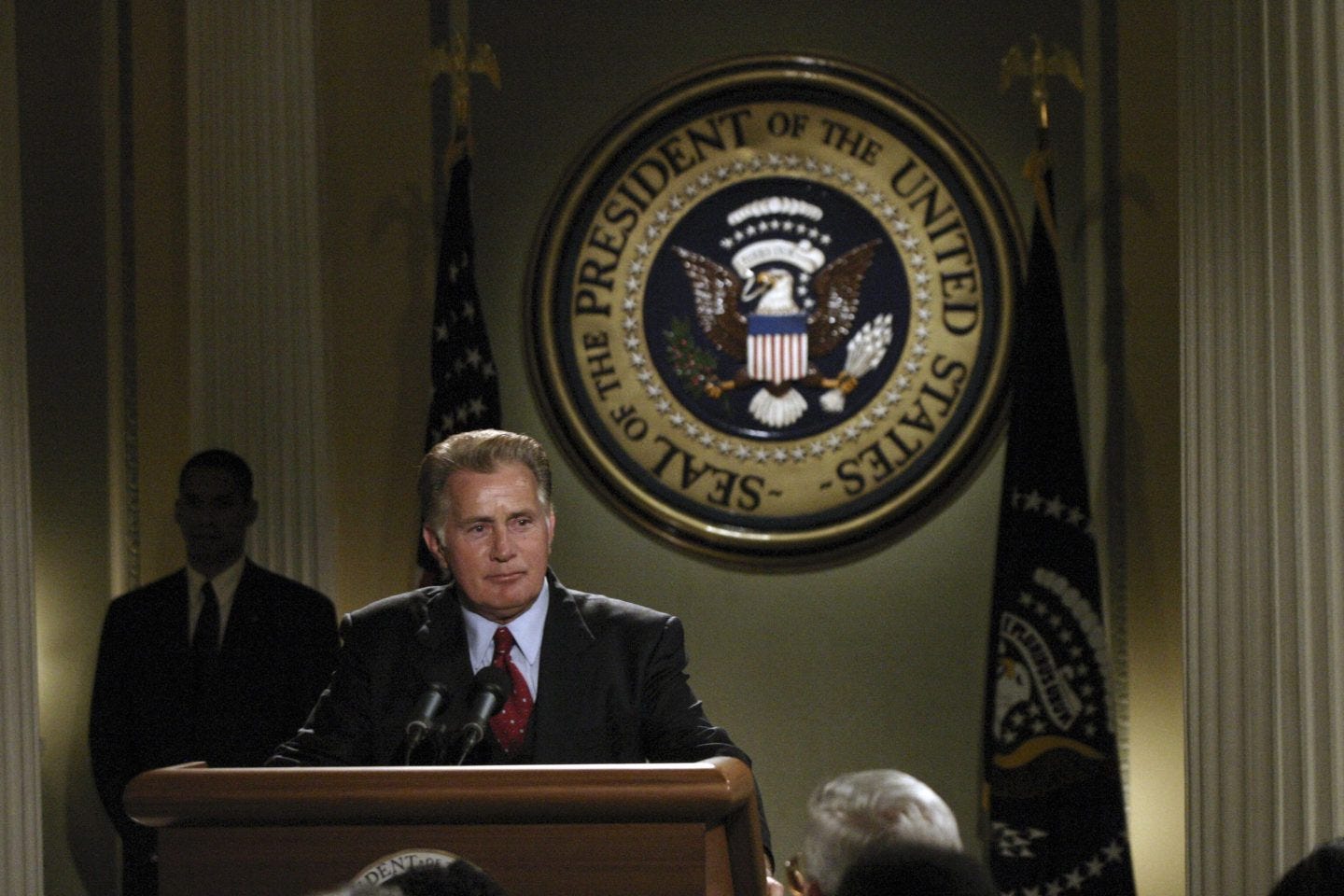As a workshop instructor I try and avoid laying down too many rules about what the work being turned in has to be or look like.
Turning work in on time is something I press the importance of (though often slip on enforcing these since I am an old softie).
Minimum page lengths matter less to me than maximum ones. There’s only so much time to read the submissions, but a good three-page story can be more interesting to discuss than a bad thirty-page one.
Page numbers, double spacing—these things help with the process, and I prefer working on paper over a screen, though often this is a losing battle these days. I give some guidance on picking readable fonts, setting margins, etc. for students when they’re preparing to submit work to publishers, but in workshop I really don’t care. Students can do what feels comfortable for them—except for one thing.
Title it.
I ask them to always, always, include a title on the top of the story. Even if it is just something temporary, a “working title”—I want students to go through the mental exercise of figuring out what this thing is that they’re working on. Giving the story a name, in some ways, makes it something in particular and not just… something.
I find that students often hate this rule, and frequently they just ignore it. We either end up with “Untitled” (as if it was something hanging up in the Contemporary Art wing of MoMA) or simply nothing at all—and so the piece becomes “Siobahn’s Story” for the purposes of discussion.
“TITLE!!!” I’ll then write, at the top in big letters.
I’d rather have a story with a title and no ending (yet) than the other way around. Why?
Because, a story without a title doesn’t know what it is. And therefore its author doesn’t know what it is. This indicates to me that its author does not really know what they’ve written.
“But how can I know what it is until I’ve finished writing it?” they sometimes ask. There’s a lot of pressure in a title. Sometimes it feels impossible to settle on a good one, especially before you’ve fully explored it.
Fair enough. If you need to write a draft first and then pick out a title for it, that’s fine.
Often when I’m stuck on a title I’ll give it a placeholder, a working title, and then go through the story at the end and look for meaningful phrases or images that I might not have known about beforehand.
In the case of my most recent novel, I changed its title a few times as things progressed. The Hunger Winter sounded too bleak, my editor thought, and my first replacement, In Times to Come was too vague. My editor was the one who dug in and found the phrase “Our Narrow Hiding Places” and saw its potential for the title—I’m not sure I would have found it on my own, though I think it is perfect.
Titles can change, titles can be discovered later. But they’re still essential.
Before you hit “send” or “print”… give it a name, even just for now. A one-worder is fine: "Ghosts” or something fairly perfunctory like “Birthday Story” is fine too.
You can go with the name of your protagonist. Emma, or Carrie, or Oliver Twist, or Don Quixote. That tells me something, at least, about what (or who) it’s going to be about. (And more next time on choosing names for characters, which I find to be much more challenging.)
It doesn’t matter if you find the right title, or the best title, but at least try.
Often I have the opposite problem—I land on a title for a story I know I want to write but I have no idea (or only the vaguest idea) of what that story actually is. In fact this has long been my preferred way of doing things. If it seems like it is putting the cart before the horse, well, it kind of is, and that’s sort of the point.
Because a title dictates the terms for what I’m about to write. Think first about what titles do for you as a reader. How excited you might get about a book just because it has an interesting title.
A Heartbreaking Work of Staggering Genius? When I saw that book on a table at a store, I bought it right away, with no idea at all what it was about or who Dave Eggers was—I just needed to know who the hell would have the nerve to title their own story that. St. Lucy's Home for Girls Raised by Wolves? When I come to that title on the syllabus for my class each semester there’s a visible shift in the classroom. People perk up. “What the hell’s that about?” They want to know, and I know they’re going to read it to find out.
That’s the power of a great title for us as readers, and it can wield the same power for us as writers too.
A title sets up some kind of expectations : a tone (highbrow, lowbrow, funny, serious, ironic, weird, magical, etc.), often pinpoints some central theme or idea, and sometimes even hints at the stylistic path forward.
Is your title short and punchy? Sold, Becoming, Educated, Atonement? Or is it long—maybe too long—Both Ways is the Only Way I Want It, We Wish to Inform You That Tomorrow We Will Be Killed with Our Families, Colorless Tsukuru Tazaki and His Years of Pilgrimage, etc. etc. It isn’t always accurate, but it does at least establish a sense of the writing inside—short sentences that get right to the point? Or long and winding ones that take their time. A grand title can leave us feeling like the work will be epic, a more intimate one gives an impression of a close study.
Perhaps you want to include some sort of reference in your title to some other work, perhaps something which inspired you? Song lyrics are a popular option here: Never Let You Go, Wish You Were Here, Norwegian Wood, Summer of ‘69… maybe this is a song which plays a meaningful role in your book, or perhaps it is just something you listened to so much as you were writing that it seeped in. Perhaps it is a little hidden reference for someone else to notice.
Or perhaps it is simply a way of piggybacking on something else—stealing a little juice from a work of art that exists already. This is one of my favorite ways of using titles.
Sometimes I like to wander in art museums looking for things that have cool titles I might borrow, like this one I saw at the Metropolitan Museum of Art long ago—It’s actually a piece of furniture, a screen that you might change behind. It is by Robert Winthrop Chanler and it is titled “Porcupines and Nightmare” — actually this side is “Porcupines” and the other side has a different image called “Nightmare”—but I saw it, read the title, and immediately knew I wanted to steal it… or, rather, tastefully reference it… in a story of my own.
I didn’t have any idea what it was going to be about when I saw the title. But it got me writing, about a man who wakes up from a PTSD nightmare (he’s a war photographer, I decided) and then discovers he can’t get to a lecture he needs to give because some porcupines have popped his tire with their quills—as I went along the porcupines became more significant as a theme in the story, as I learned more about them. (I was particularly struck by one discovery: that porcupines are clumsy and so often fall out of trees and stick themselves with their quills. Rather than evolution gradually leading them to become less clumsy over time, it simply aided porcupines in developing a kind of antibiotic ability to protect them from their inevitable falls. This tied right into the sad situation my war photographer found himself in.)
But the point is, it all began with the title.
(That story, “Porcupines and Nightmare” was printed in the first issue of Adult Magazine, in 2013, an odd publication that didn’t last too long, which tried to mix tasteful artistic nude images with fiction and essays, kind of like a classier Playboy—they did a great job with the story in any case!)
The thing I love about titles like this is that one can simply can pop out at you from anywhere. Somehow it just feels like it was left there to be found by you—to inspire something important.
Over the winter vacation, I was traveling in Latin America and went to some Mayan ruins with my family. I was not, at all, really thinking about writing, just enjoying the experience and trying to relax, maybe learn something. Then on one of the signs interpreting a “Stela” or a pillar covered in cuneiforms that told some sort of ancient story.
Now, any number of cool things might have inspired me from the image or the text, from the bloodletting ritual to the woman on the throne or whatever “the Dresden codex” is—but the phrase that leapt out to me was “the divine king of an unknown place.” I don’t know why that line in particular resonated so strongly with me, but it did. As soon as I saw it I knew it was a title to something. I took the photo to remember the exact wording, and as soon as we got back onto the tour bus, I jotted it down. It kicked around in my brain for a few more weeks until suddenly I realized where it might belong in my novel-in-progress. Today, I started writing it. The first thing I did was throw that title at the top of the document. It feels almost like the story is now just under it, as yet invisible. It’s the closest I ever come to feeling that thing like Michelangelo supposedly did, where you see the statue inside the block of marble, before you’ve even begun carving.
More recently I happened upon a description of a Botticelli painting in the Uffizi gallery in Florence called Calumny of Apelles. Without even knowing what the painting was about, or really what “calumny” even meant, I just got that familiar feeling in my gut… that’s a title. The challenge here will be to somehow tie the painting into the story, either literally or metaphorically. Some people who read it someday will know the painting and need that connection to be there to warrant the title’s use, and that sets up a specific goal for me as I’m writing.
In short, the story has to live up to the title. That’s why I love starting with titles.
A strong title sets the bar high for the story you’re writing.
Back in 2009, I remember sitting down one day to write a story that I thought was just going to be called “Jazz Brunch” because all I knew about the story at first was that it would take place during a Sunday Jazz Brunch at a hotel off Washington Square Park—I had been recently with some friends and something about it was clicking in my mind with a separate experience that week—finally seeing the Beckett play Waiting for Godot (with Nathan Lane and Bill Irwin and John Goodman) for the first time. I thought I’d known what that play was—I’d heard the punchline anyway, that it’s about two guys waiting for someone named Godot to arrive who never does. But I was so moved by the dependency of Vladimir and Estragon on one another—it didn’t seem like Godot’s arrival that meant they could never go anywhere, but rather that neither V or E seemed able to leave the other behind, and they couldn’t agree on simply leaving together. Sitting with my own friends at the Jazz Brunch later, I thought about how we also deeply needed each other, and how sometimes that dependency could push against any kind of change. I thought of the line in the Bible (I didn’t even know what part of the Bible it was in—”Can the Ethiopian change his skin, or the leopard his spots? then may ye also do good, that are accustomed to do evil.” (I hadn’t remembered the Ethiopian part, yikes!)
And from there I thought of a much better title than “Jazz Brunch”—“The Unchangeable Spots of Leopards” and the minute I had that title at the top of the document, the whole story changed. In a very real way I felt the story expand in my mind. With such a lofty-sounding title, this story was going to need to be about something deservingly lofty too. At the same time it became more specific. This story was not about friends in a co-dependent relationship. It was about people who can’t change. People who want to do good, but can’t let each other, and so behave evilly (selfishly at least). And that story, soon enough, became the first part of my debut novel, all because of a title that made me tilt just a little more ambitiously than usual.
If it doesn’t work out, or if you stumble onto something better as you go, then by all means you can and should change the title—either way you’ll have gotten some needed propulsion out of it at the hardest place—the start.
There’s a speech in an episode of The West Wing (S1E20, Mandatory Minimums) that I think of often, where President Bartlet is gearing up to make a bold announcement (about reforming the FEC if you can believe what used to feel bold in the arena of national politics).
"My father was very fond the analogy of the Irish lads whose journey was blocked by a brick wall seemingly too high to scale. Throwing their caps over the wall the lads had no choice but to follow."
(I’ve seen this story attributed to JFK and also to Irish writer Frank O’Connor, though I suppose in either case it could simply be an old Irish tale.)
In any case, this is what I think of a good title as doing for you as a writer, and why I like to start with titles whenever possible, rather than find them afterwards—if the wall is the story you want to write, the title is the cap you throw over it in order to make yourself climb it.
So keep your eyes and ears open, and have a title list somewhere. Again, there’s nothing wrong with finding your title later on, but for me there’s nothing so exciting as beginning with one.
Eventually a great title will signal your ambitions to your reader, but before it does that it will signal them to you.











I don't have a story until I have a title. Titles give me the direction, my pantser-self needs to write forward.